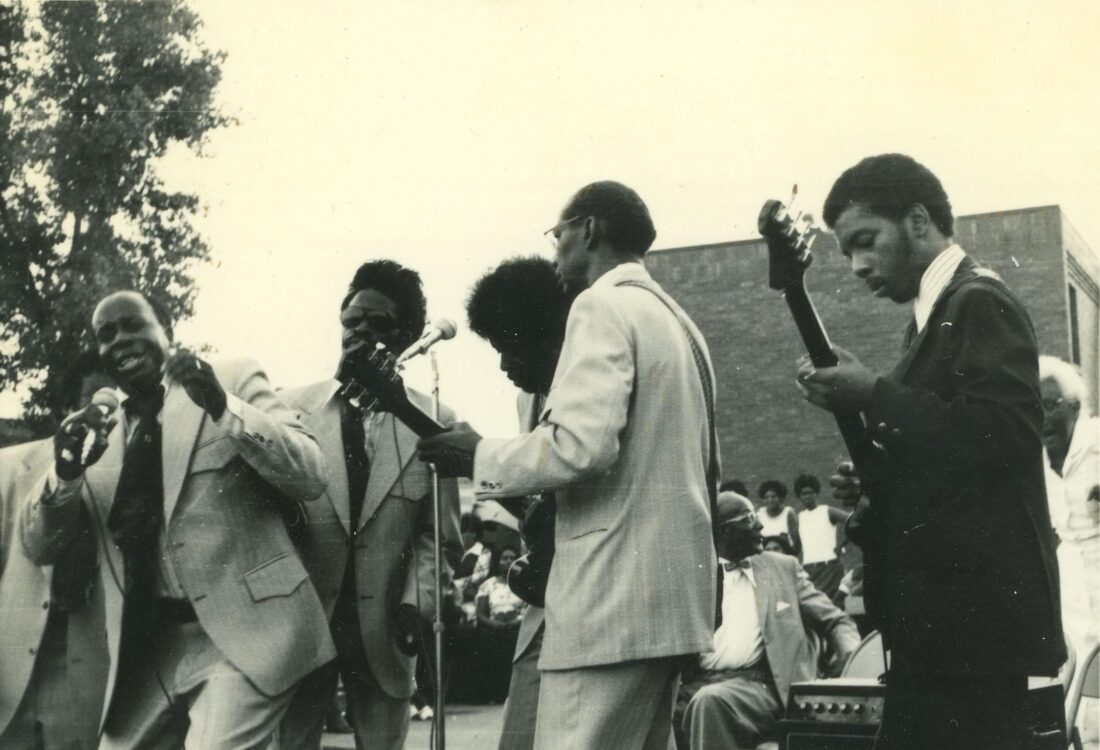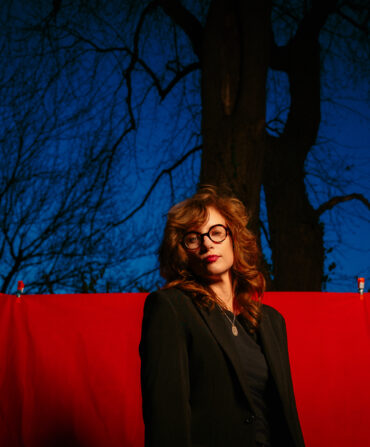Among the pockets of musical genius that have flourished across the South, Louisville, Kentucky, is perhaps one of the less celebrated. But if not for homegrown talents like Harvey Fuqua, a pivotal figure in R&B for the Chess and Motown labels, modern popular music would lack a certain swagger.

Naturally, when Joe Manning of the nonprofit Louisville Story Program set out to research the city’s underrepresented music history, he expected to find a much deeper well of fledgling soul and R&B artists. What he discovered, though, was a Black gospel music scene so rich and influential that at one time no fewer than four locally based record labels were releasing singles and albums from more than a hundred artists and groups.
“There was this explosion of gospel music in Louisville,” says Manning, the program’s deputy director, who along with executive director Darcy Thompson researched and compiled a new box set of recordings and stories, I’m Glad About It: The Legacy of Gospel Music in Louisville, 1958-1981. “It was a really productive moment for gospel music at that time, and one that you don’t know about unless you go looking.” That is, he adds, unless “you were Black and grew up in the church in Louisville.”
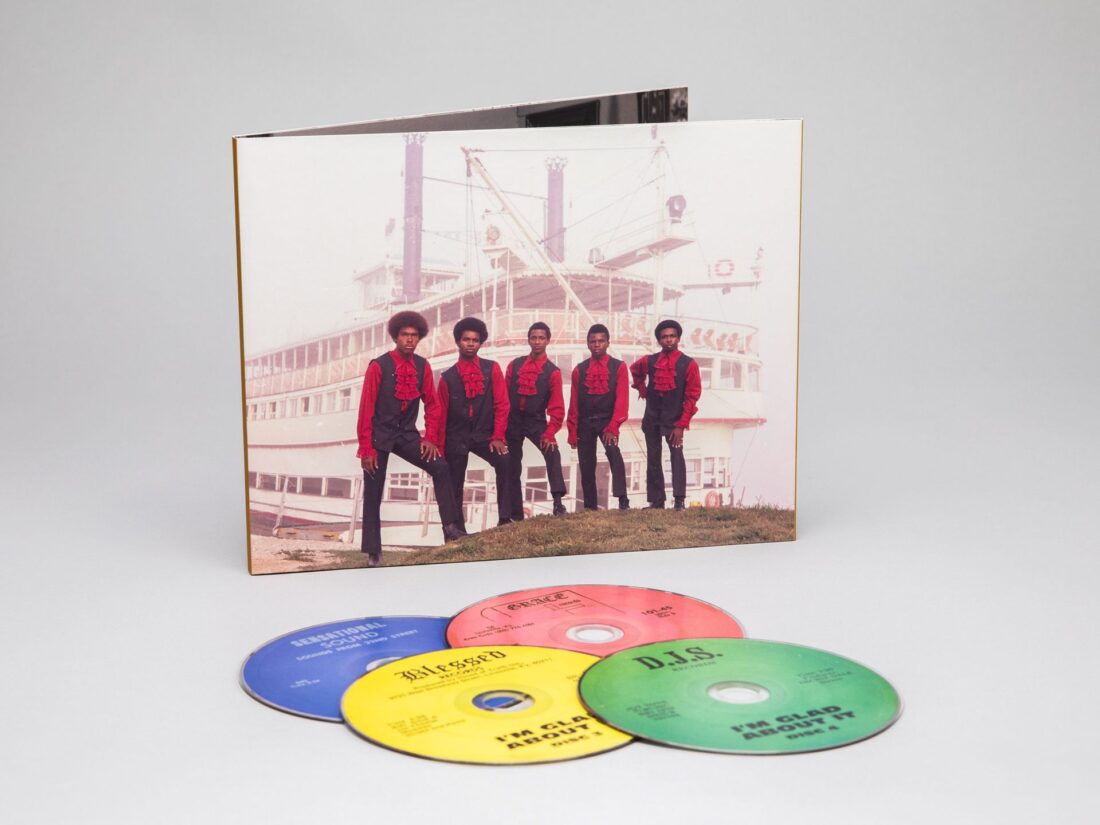
I’m Glad About It I’m Glad About It pairs eighty-three restored recordings with a 208-page hardbound book of first-person narratives that details the history of the artists and music from Louisville’s peak gospel years. A melting pot of musical influences created a scene overflowing with creativity in the gospel genre, as singing quartets and choirs swapped sounds with contemporary popular music. Groups like the Heavenly Five brought a doo-wop flavor to gospel on songs like “Jesus Sets High and Looks Down Low,” while a proto-funk guitar backs the Deep River Song Birds on “12 Gates to the City.”
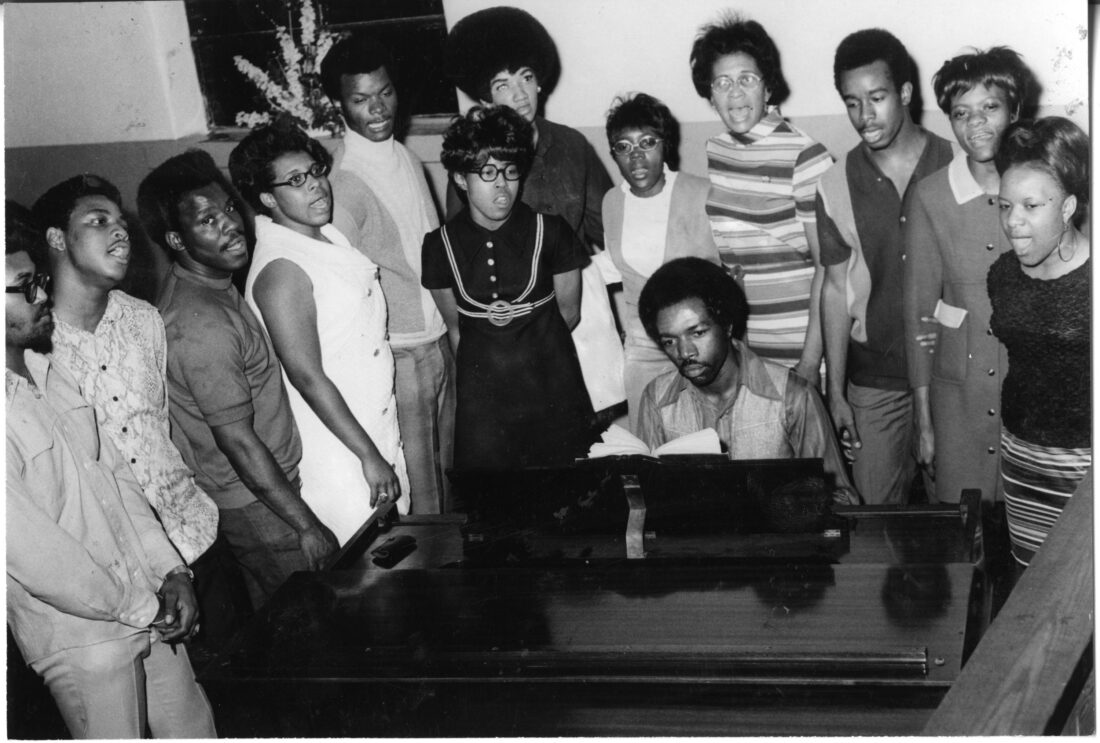
“Most of the rock and roll or blues singers are ones who started in church,” says Della Porter, who sang with the Louisville gospel group the Traveling Notes. “That expression was initiated in the choir at church, and then they went into rock and roll. Even the blues singing originated with many of the artists from church. They could express it in gospel and choir singing.”
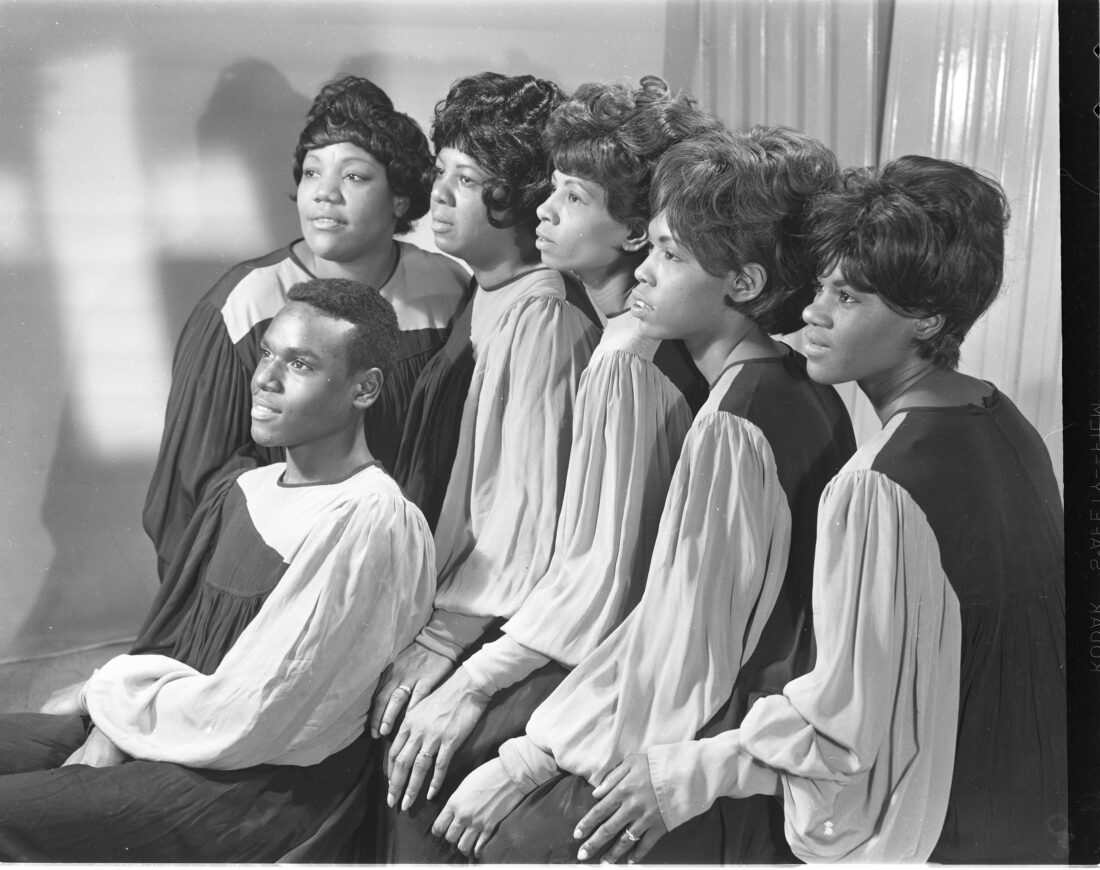
The Traveling Notes, along with Archie Dale and the Tones of Joy and other groups, toured nationally, too, as word of the good news in Louisville spread along the gospel circuit. Over time, though, the gospel quartet rush slowed down as mass choirs surged in popularity. Some singers found other callings—Porter exited the Traveling Notes and spent the next four decades in the ministry, until retiring from her pastorship at First Congregational Methodist Church in Louisville last year.
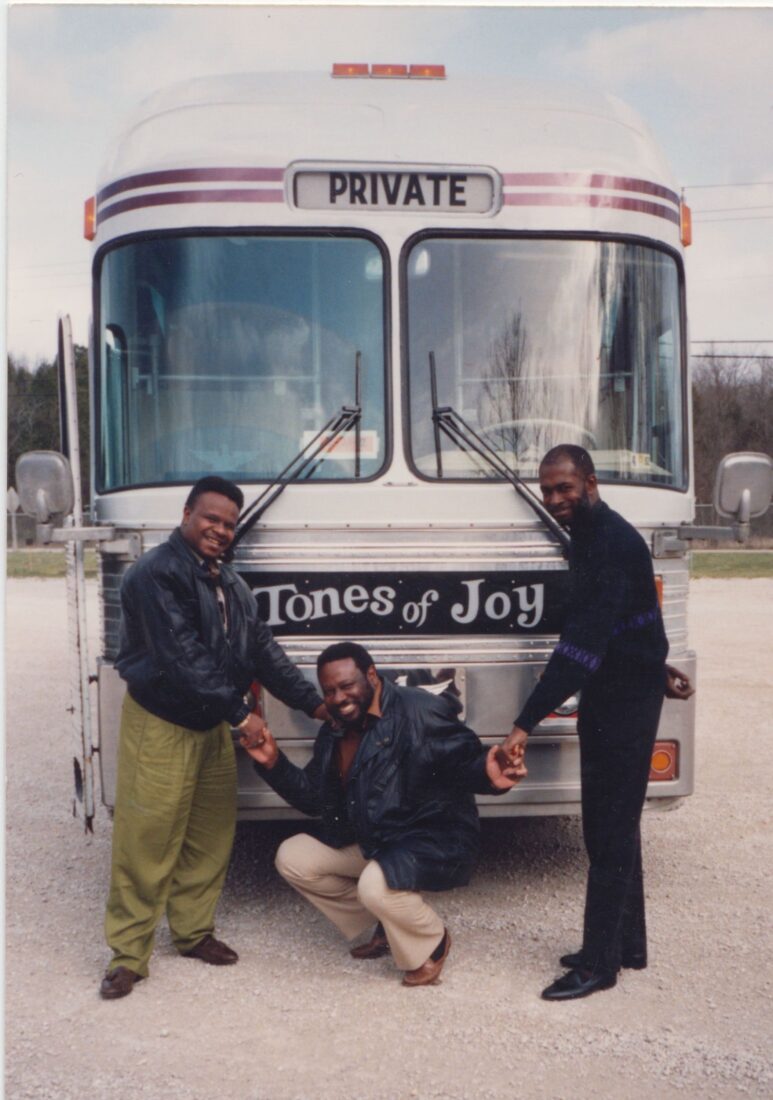
In the decades since the city’s gospel boom, much of the legacy had been forgotten. A lightning strike destroyed the archive of the Grace Gospel label, while collections owned by gospel radio stations were simply discarded when formats moved away from vinyl LPs. Preserving the music that would become I’m Glad About It, then, first required Manning and Thompson to locate it.
“If it wasn’t in the bargain bin at the thrift shop or in somebody’s basement, or in many cases had been collected and carefully stored by collectors, it’s gone,” Manning says. But through members of the local community and a small group of gospel enthusiasts, the Louisville Story Program began acquiring stacks of 45-rpm singles, eventually amassing more than a thousand songs by local artists. During three years of research, the group also unearthed tapes of a local gospel TV show, Lifting Jesus, hosted by Bishop Cliff Butler. Those additional songs and other materials will be preserved at the Story Program’s ongoing digital archive, Manning says.
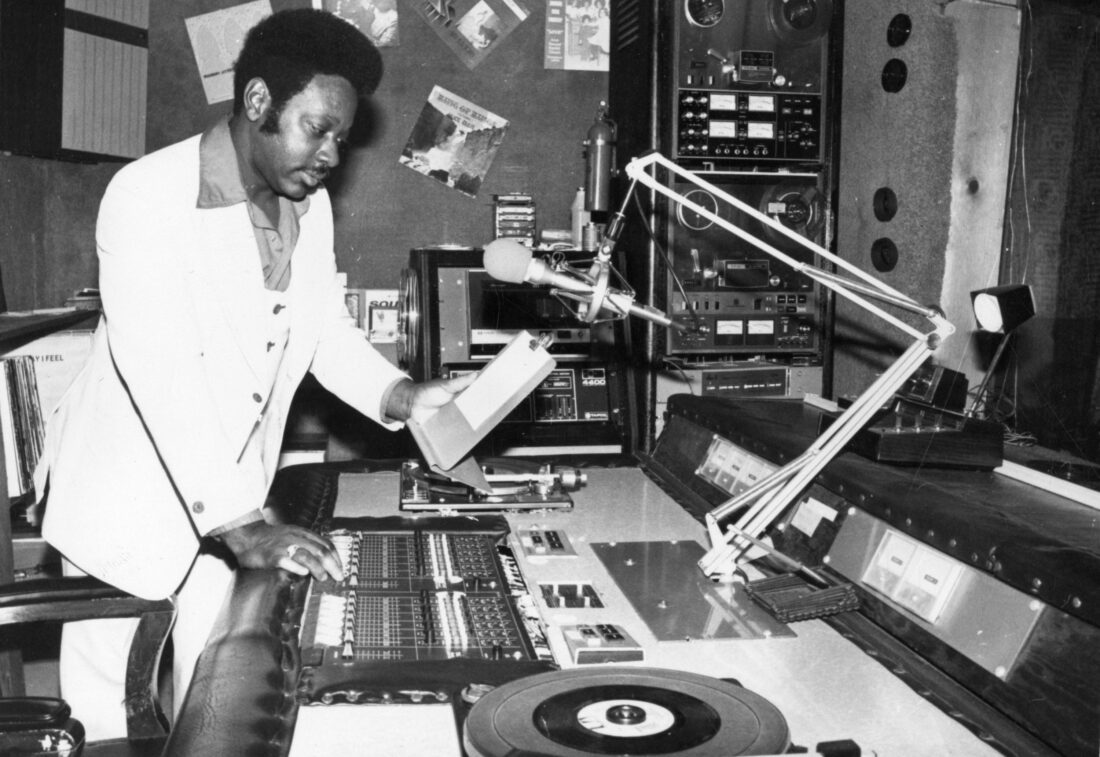
To celebrate the box set’s release on September 28, the Louisville Story Program and Kentucky Performing Arts will present a concert featuring performances by several gospel groups, including Archie Dale and the Tones of Joy, the Religious Five, and the Gospel Voices of Soul—all of whom are featured on the four-CD set.
“Every town in America that ever had a recording studio has some buried treasure somewhere,” Manning says. “That’s what is so exciting.”
Listen to a sampler from the box set below. I’m Glad About It is available to order here.


